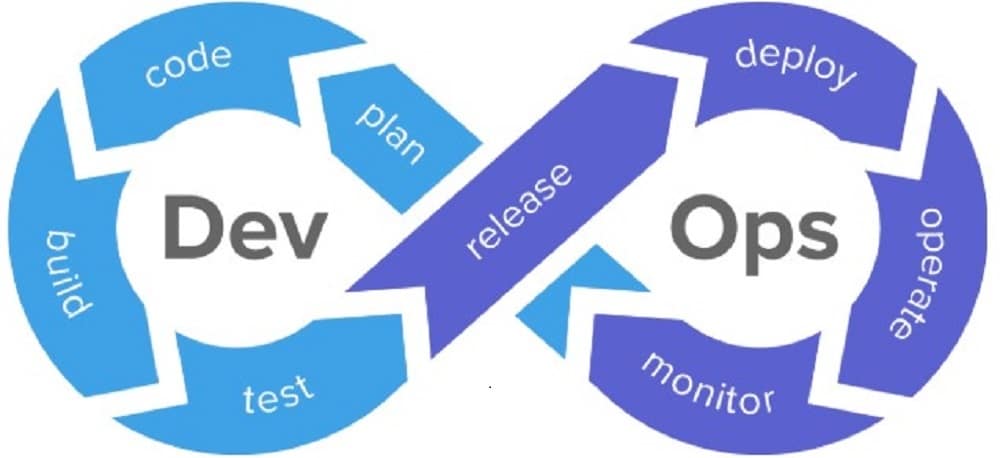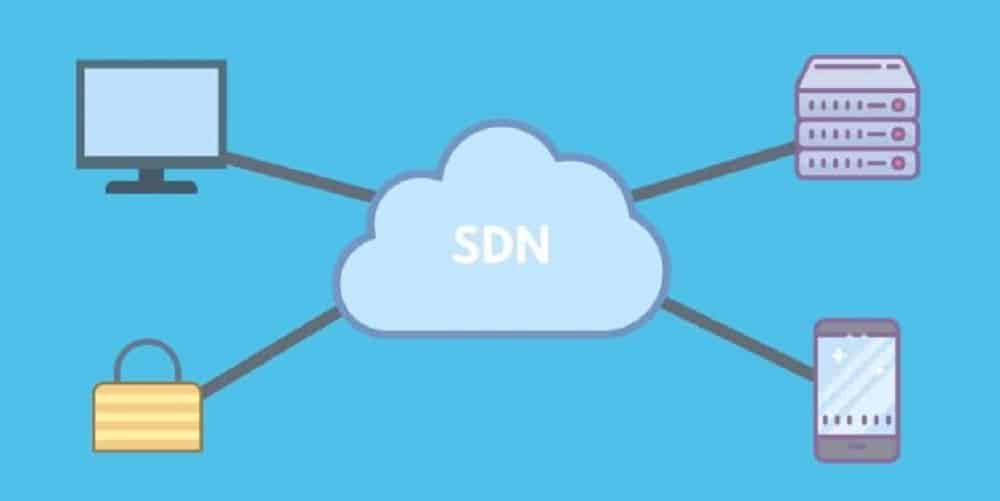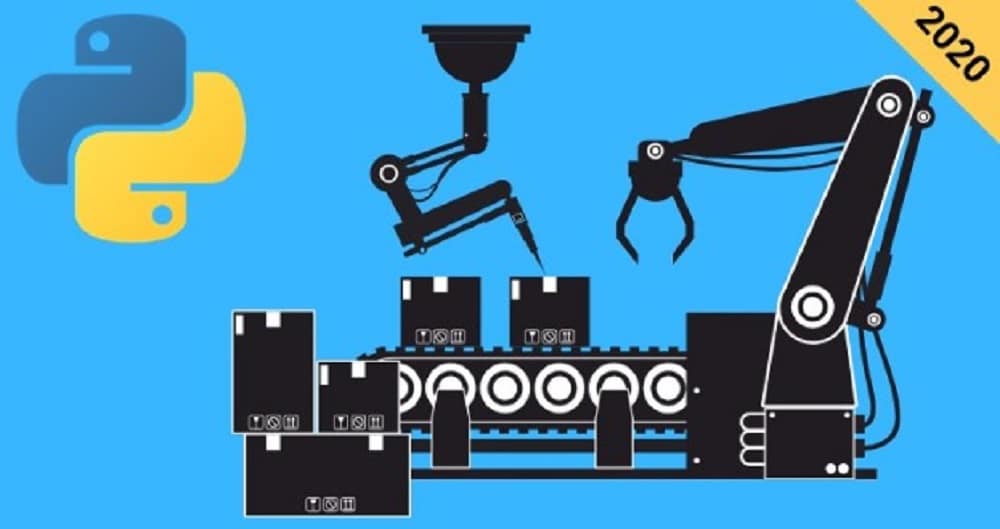Note: We do not get any form of payment if you choose to buy any books or courses recommended below. Our recommendations are purely based on what we believe to help network professionals secure and grow their careers.

The IT industry is ever changing especially in times of disruption like we are currently living through. Network engineers and system administrators are not spared from this relentless change.
Some people believe that Network Engineers jobs will be replaced by automation. However, we don’t believe this is the case and neither does a study conducted by CareerBuilder.
It is clear that network engineers and system administrators need to embrace the change and develop new skills in order to be successful.
What will happen if you choose to not learn and develop new and necessary skills? You may find your career stopping in it tracks and unable to achieve the success you want.
So what can you do right now to prepare for the future of network engineering and system administration?
1. Embrace DevOps

In today’s world IT departments are increasingly expected to deliver new features fast and consistently while providing 24/7 network connectivity. DevOps can help achieve this goal by promoting a high degree of collaboration between the developer side and the networking side of the IT value chain.
According to McKinsey’s 2017 IT-as-a-Service Survey, 80 percent of respondents stated that they had implemented DevOps practices in some part of their organizations. Companies may have trouble finding staff to fill all roles, since 40 percent of survey respondents stated that a lack of internal talent and skills was the primary factor preventing DevOps from becoming mainstream.
In order to stay competitive in the IT marketplace (especially one rocked by a pandemic and a recession), network engineers and system administrators should make the effort to learn about DevOps and how the mindset can add great value to a company.
One example of DevOps value is that sometimes developers deploy applications before finding out if the infrastructure can support them. This creates unnecessary headaches for the infrastructure team and decreases the efficiency of feature roll out which ultimately costs the company more money.
Why do companies want people that have knowledge of DevOps?
Companies are looking for candidates that consider the “big picture” when it comes to their job. More and more hiring managers want network and system administrator candidates to consider the broad business context of their role. By developing a DevOps mindset and skill set you can be positioned to add value as the trend toward DevOps continues in companies. Another positive is that DevOps roles typically command a higher salary than regular network engineers and system administrators.
A great online course for learning DevOps is DevOps for Network Engineers (LFS266) from the Linux Foundation Training.
2. Earn cyber security certifications

It seems like every other day there is another story in the news about a breach at a large company like Equifax or Target. Cyber security is one of the top priorities for companies. According to McKinsey, companies are struggling to mount a solid cyber security defense as well as finding talent for it.
There are a couple certifications that companies are looking for as part of their cyber security strategy. The top couple include:
- CISSP
- CCNP
- CompTIA Security+.
By earning these certifications network engineers and system administrators skill sets are more versatile and useful which in turn makes companies less likely to let you go if the economy goes south. Companies need employees with cyber security knowledge in order to face the challenges in an increasingly connected world.
3. Learn about SDNs (Software Defined Networks)

Companies are always looking for ways to reduce costs while maintaining revenue. In the tech world, rapid rise in cloud computing and a massive increase in mobile usage makes creating and maintaining networks increasingly difficult. Thus making the job of modernizing network infrastructures requires people with the most up to date knowledge.
So what technology have companies turned to to help reduce network cost while also creating a more agile network?
Software Defined Networks, also known as SDNs.
SDN is a new network architecture approach that allows the network to be programmed using various software applications. This network architecture allows companies to consolidate multiple services in one infrastructure for both service providers and carriers. Cisco cites that SDNs make networks flexible and easier to manage. Many CTOs are already requiring engineers to understand how virtualized networks work.
SDNs are an essential part of the network engineering future. It isn’t a question of if companies will move towards a SDN, it’s a question of when they will. In order to keep your skills up to date to remain a sought after Network Engineer you must learn software defined networks.
So how can you start to learn Software Defined Networking?
- Learn Basic Programming and SDNs Toolkit
Don’t worry you’re not going to be a programmer nor will you be a “network programmer” You don’t need to be an expert on every language, but a basic understanding can go a long way.
These are all a big part of enterprise application developer’s toolkit and will become part of a network engineer’s tool kit when using SDNs.
- Learn the basics of Ruby
- Learn the basics of Python
- Learn the basics of Chef
- Learn the basics of Puppet
- Learn the basics of Ansible
- Learn How to Work With SDN Controllers
Here is a free Ebook, no email required, to help you learn about SDN controllers.
- Learn How to Work with OpenFlow
Learning the basics of OpenFlow is essentially learning the building blocks of SDNs. Here is a great way to learn how OpenFlow works.
- Manage API Integrations
Learning how to manage the interaction of applications and orchestration systems that connect with northbound APIs is an essential skill to make yourself a more marketable Network Engineer.
Here is a great course on learning northbound APIs
If you just want to learn the basics here is a great video and article to get started.
4. Play around in the cloud

According to McKinsey, IaaS (infrastructure as a service) providers such as AWS and Azure account for almost half of IT infrastructure provisioning.
On-premise data centers have been on the decline due to the high capital and labor costs associated with them. The key for network and system administrators is to embrace cloud computing because it is not going away. Companies are looking for people with cloud experience and knowledge to maintain their systems while consolidating roles at the lower levels of the technology stack.
Many of the cloud providers such as Amazon offer free trials of their cloud services for people to play around on in order to gain experience. For example, IBM offers a no-charge 60 day trial of IBM SmartCloud Engage.
5. Develop automated scripting skills

Learning new automated scripting/programming languages may not be an essential skill right now for a network engineer or system administrator role. However, in the near future, you will start to see this skill as a requirement on job postings. Or perhaps your current job will change to require some basic automated scripting/programming knowledge.
What if you choose the network engineering career path so you didn’t have to work on pages of code all day? No need to start thinking about changing your career.
We believe that the future of network engineers won’t fully be coding and scripting. Instead, this will be just a part of the role and it will become an essential skill to know.
So why would companies start requiring knowledge in coding for networking engineer roles?
Because, as you may know, the future of networking engineering is mostly cloud based and software defined networking (SDN).
You need better methods to programmatic control equipment and to increase the use of network virtualization. You also need to learn some programming languages and automated scripting to have the ability to use the new tools and new programmatic access.
How do you learn automated scripting to keep your networking skills up to date?
According to IBM, you should stat with the basics as follows:
- Scripting languages syntax and operations
- Product configuration such as workflow process ,escalations, and action
- Application data models and relationship
You can learn this by reading this book on Practical Network Automation: A Beginner’s guide to automating and optimizing networks using Python, Ansible, and more.
When starting to get more serious and more experience with networking automation, we recommend that you read this Network Automation Cookbook.
It is a great way to learn about how to apply your network automation skills in a real environment.
Now, how do you learn programming languages and which programming languages should you learn to ensure your career as a network engineer or system administrator has a brighter future?
With over 700 programming languages available it can be daunting on which languages to start to learn. So which programming languages should you start to learn?
Here are the top languages you should start to learn as a network engineer. Hint, start with the general purpose languages.
- Python
- Java
- JavaScript
- C/C++
- Ruby
You can start to learn these languages by taking the following courses below. It is important to know that employers do not hire you because of online courses you take but instead hire you for the experience you have.
Therefore, when going through the courses, our advice is to apply these ideas in your current job or as a side project to show your current or future employer you know what you are doing.
- Python Programming for Network Engineers
- Java Fundamentals for Network Engineers
- Learn the Fundamentals of JavaScript
- Learn the Fundamentals of C#
- Learn The Fundamentals of Ruby
Embrace Change!
In our ever changing world, it is important to always be on the forefront of the technology in your profession. System administrators and network engineers need to embrace DevOps, automation, and cloud computing skills if they wish to stay competitive in today’s marketplace and avoid getting outsourced.
We know that there is a lot for you to learn here and it can seem overwhelming. It is important to just pick one or two aspects to focus on and apply it to your current job or a side project.
If you are interested in learning more about opportunities in the networking and infrastructure space feel free to schedule a call with one of our recruiters using the link here.
